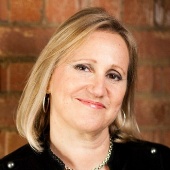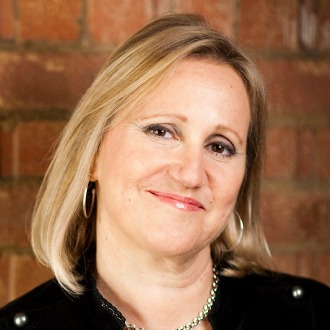
Name
Carol Cooper
Title GP locum, author and journalist
Age 52
Location London
Background
I’ve been writing for over 25 years, beginning with magazines like World Medicine and Punch Digest for Doctors that encouraged doctors to take a sideways glance at working life. For about 15 years now I’ve been with The Sun newspaper, where I get to air my views on topics ranging from assisted dying to the dangers of drinking petrol.
I found it almost impossible to be a GP principal and a lone parent to three teenaged sons, let alone fit in media work. So these days I locum.
So far there are some 10 non-fiction books to my name, including an award-winning textbook of general practice co-authored with colleagues from Imperial College Medical School where I teach.
I’ve now done an about-turn with my novel One Night at the Jacaranda. It’s about 30-somethings looking for someone special, so you can expect plenty on love, sex, and relationships. But the book also covers darker themes and has a vital medical strand.
Why I chose this work
I’ve always written – you could say the work chose me. As a child I churned out stories about witches burning to death from smoking in bed. As an undergraduate it was music reviews, a great way of going to gigs for free.
When I was a trainee in Borehamwood, Hertfordshire, in the late 1980s my trainer sometimes said I’d write a book on general practice. But I don’t think she meant a raunchy novel with a pair of red shoes on the cover.
My first book in 1995 was about stress at work, and perhaps that’s the real reason I write books: it’s a great way to relieve the toll of a career in general practice.
I love observing people and studying what makes them tick, which is what novels and general practice have in common.
Advantages
I value the independence of writing, the liberating feeling that I can write anytime or anywhere (if my family lets me), and yet it interlinks perfectly with medicine. I have to keep up to date to write for The Sun or to go on TV. The same goes for fiction, if you have anything factual in it. There’s no room for errors when your message goes out to thousands or even millions of people (my novel isn’t a bestseller yet but the Amazon reviews are encouraging).
Writing is a great stress-buster. Getting stuff down on paper helps me reflect, and it definitely enables me to see the lighter side of life. I can’t think of a better way of preventing burn-out, at least not when the weather’s bad.
For me, the biggest plus is that it’s an outlet for my creativity and self-expression. When I’m writing chick-lit, I can set my imagination free. You can’t say that about referral letters.
Challenges
Whatever you write, you’re still a doctor. That means being medically accurate, respecting confidentiality, and observing boundaries. The characters in One Night at the Jacaranda are complicated and realistic. They include a disillusioned GP, a freelance journalist, and a young man dying of cancer. It’s obvious where those ideas came from, yet the characters are completely fictional. You can’t put patients or colleagues in a novel.
People sometimes object to what I’ve written – occasionally I’ve offended or got it wrong, but often people are just envious. I’ve learned to take the flak. They seem to believe you can’t be a serious doctor as well as an author but I still see patients and get appraised every year, and writing a textbook has also boosted my credibility.
Sometimes I have to be patient. Lots of young doctors ask me for advice on writing, which I’m happy to give, but they then admit they have no idea what they want to write. It usually turns out they’re after the kudos or the megabucks. They’re often surprised to hear that a GP usually earns far more than a writer.
If you genuinely want to write, you also know what you want to write: exactly the kind of thing you’d like to read yourself. That’s why another novel is in the works.
I’d encourage anyone with a creative desire to consider writing fiction. It can take a long time to get published, and even longer to earn money from it. But in the process you learn the most valuable literacy skill of all, using plain words to convey complex ideas.

















